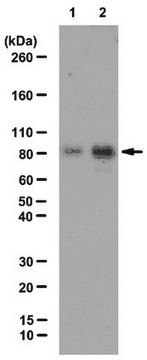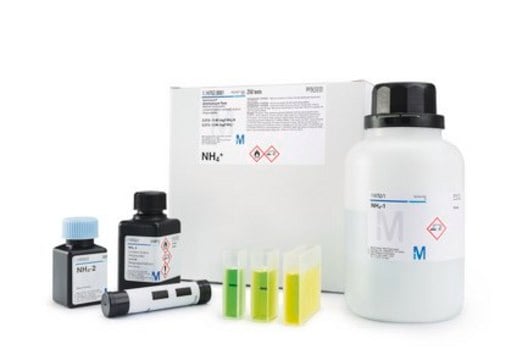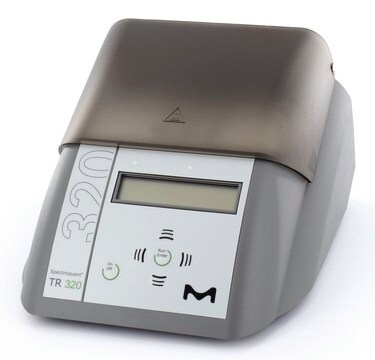ABT1378
Anti-Acetyl Cortactin (Lys309)
from rabbit
Synonyme(s) :
Amplaxin, Oncogene EMS1, Src substrate cortactin
About This Item
Produits recommandés
Source biologique
rabbit
Niveau de qualité
Forme d'anticorps
affinity isolated antibody
Type de produit anticorps
primary antibodies
Clone
polyclonal
Espèces réactives
monkey
Réactivité de l'espèce (prédite par homologie)
human (based on 100% sequence homology)
Technique(s)
immunofluorescence: suitable
western blot: suitable
Numéro d'accès NCBI
Numéro d'accès UniProt
Conditions d'expédition
ambient
Modification post-traductionnelle de la cible
acetylation (Lys309)
Informations sur le gène
human ... CTTN(2017)
Description générale
Spécificité
Immunogène
Application
Cell Structure
Western Blotting Analysis: A representative lot detected Acetyl Cortactin (Lys309) in transfected COS-7 cells (Ito, A., et. al. (2015). Sci Signal. 8(404):ra120).
Immunofluorescence Analysis: A representative lot detected Acetyl Cortactin (Lys309) in COS-7 cells treated with or without Trichostatin and Nicotinamide (Ito, A., et. al. (2015). Sci Signal. 8(404):ra120).
Qualité
Western Blotting Analysis: A 1:1,000 dilution of this antibody detected Src substrate cortactin in lysates from COS-7 cells stimulated with Trichostatin (1 mM) and Nicotinamide (5 mM).
Description de la cible
Forme physique
Stockage et stabilité
Handling Recommendations: Upon receipt and prior to removing the cap, centrifuge the vial and gently mix the solution. Aliquot into microcentrifuge tubes and store at -20°C. Avoid repeated freeze/thaw cycles, which may damage IgG and affect product performance.
Autres remarques
Clause de non-responsabilité
Vous ne trouvez pas le bon produit ?
Essayez notre Outil de sélection de produits.
Code de la classe de stockage
10 - Combustible liquids
Classe de danger pour l'eau (WGK)
WGK 2
Certificats d'analyse (COA)
Recherchez un Certificats d'analyse (COA) en saisissant le numéro de lot du produit. Les numéros de lot figurent sur l'étiquette du produit après les mots "Lot" ou "Batch".
Déjà en possession de ce produit ?
Retrouvez la documentation relative aux produits que vous avez récemment achetés dans la Bibliothèque de documents.
Notre équipe de scientifiques dispose d'une expérience dans tous les secteurs de la recherche, notamment en sciences de la vie, science des matériaux, synthèse chimique, chromatographie, analyse et dans de nombreux autres domaines..
Contacter notre Service technique







